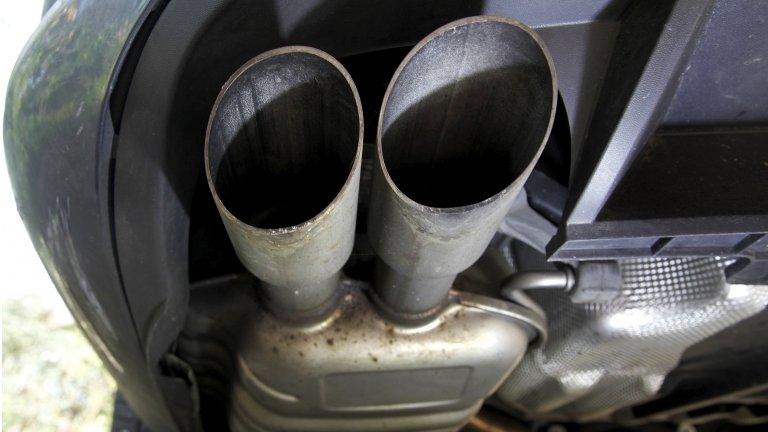Air pollution: Benefits of cycling and walking outweigh harms - study
- Published

The health benefits of cycling and walking outweigh the harmful effects of air pollution, a study has suggested.
Air pollution contributes to 40,000 early deaths, external each year in the UK and we gulp in more of it when we exercise.
On the other hand, regular exercise reduces the risk of diabetes, heart disease, and several cancers.
The University of Cambridge study showed that even in cities with high pollution levels, the benefits outweigh the risks.
The researchers used computer simulations to compare data on different kinds of physical activity and different levels of air pollution in locations around the world.
It found that for an average air pollution concentration in an urban area, the tipping point - when the risks begin to outweigh the benefits - comes after a huge seven hours of cycling or 16 hours of walking a day.
It is far beyond what most people would ever do.
"Even in Delhi, one of the most polluted cities in the world - with pollution levels 10 times those in London - people would need to cycle over five hours per week before the pollution risks outweigh the health benefits," said Dr Marko Tainio, the lead author of the study.
He added: "We should remember, though, that a small minority of workers in the most polluted cities, such as bike messengers, may be exposed to levels of air pollution high enough to cancel out the health benefits of physical activity."
The study, published in Preventive Medicine, external, said exercise was always beneficial in London.
'Action still needed'
The average air pollution level for cities around the globe is 22 micrograms per cubic metre, according to the World Health Organisation (WHO). In London the air pollution level was recorded at 16 micrograms per cubic metre in 2011.
Senior author Dr James Woodcock added: "Whilst this research demonstrates the benefits of physical activity in spite of air quality, it is not an argument for inaction in combating pollution.
"It provides further support for investment in infrastructure to get people out of their cars and onto their feet or their bikes - which can itself reduce pollution levels at the same time as supporting physical activity."
The research was carried out by experts from the University of Cambridge's Centre for Diet and Activity Research and Medical Research Council Epidemiology Unit, along with researchers from the University of East Anglia.
- Published14 March 2016

- Published23 February 2016

- Published13 February 2016

- Published1 March 2016

- Published1 March 2016

- Published15 July 2015
